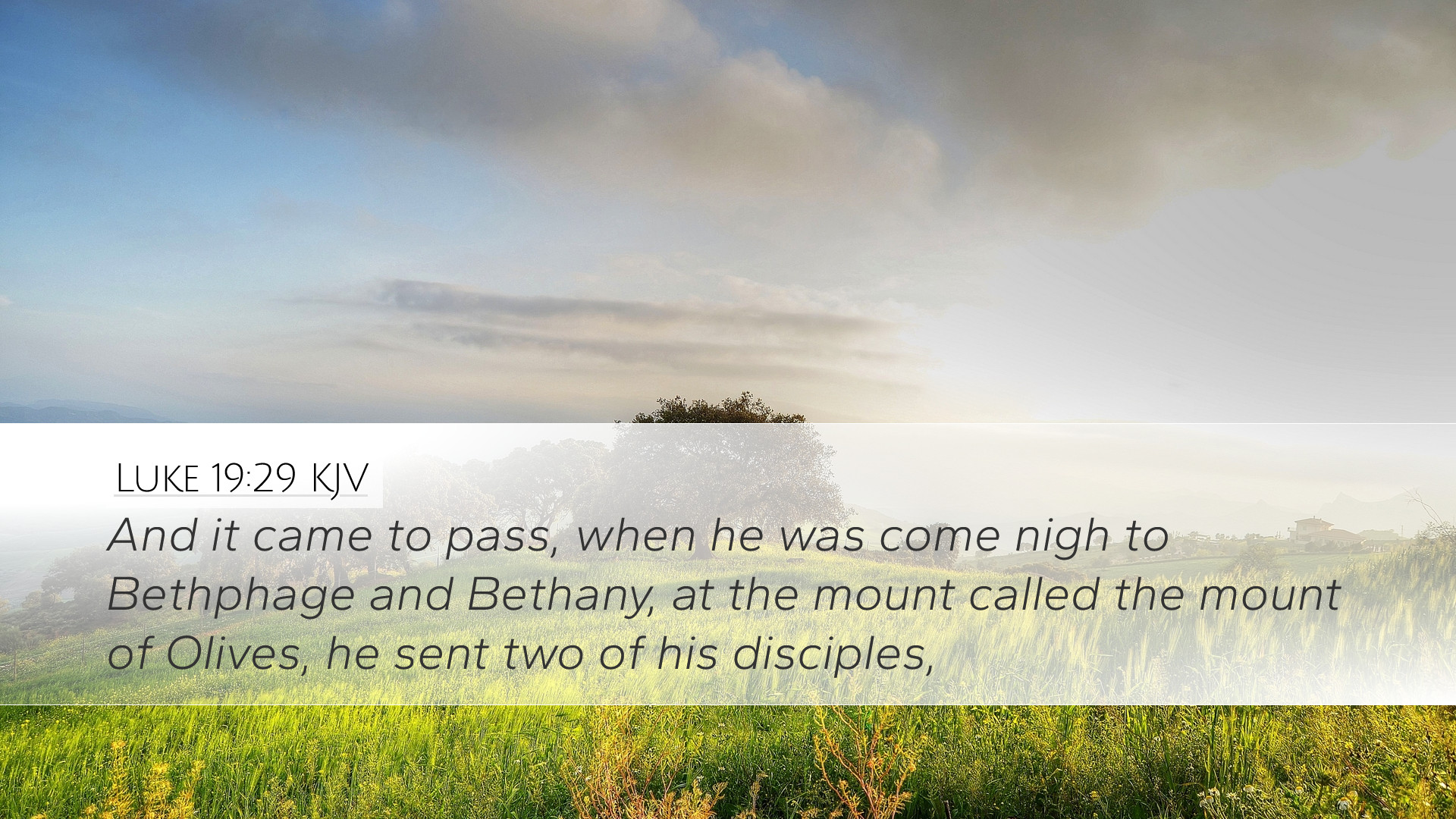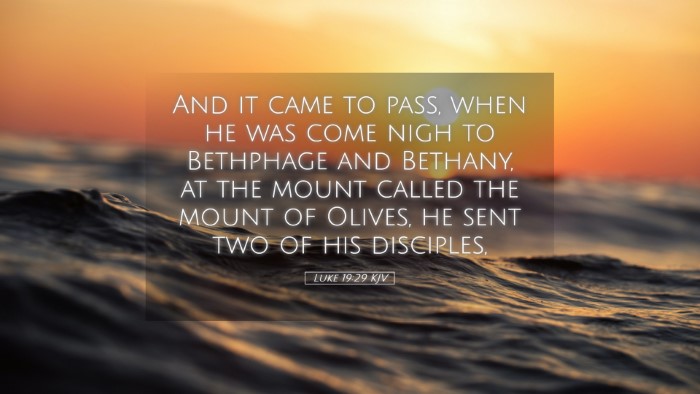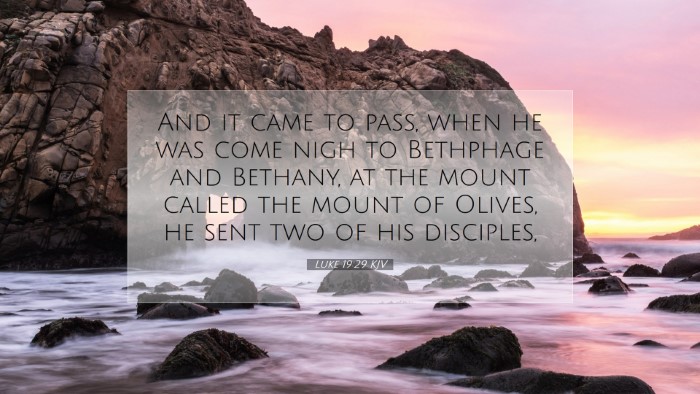Commentary on Luke 19:29
Luke 19:29 (KJV) states: "And it came to pass, when he was come nigh to Bethphage and Bethany, at the mount called the mount of Olives, he sent two of his disciples." This verse marks a pivotal moment in the Gospel narrative, heralding the beginning of Christ's final journey into Jerusalem, a setting rich with theological and eschatological significance. Below, insights from Matthew Henry, Albert Barnes, and Adam Clarke are combined to provide a cohesive commentary relevant to pastors, students, and scholars.
Context and Significance
The journey to Jerusalem is central to the Messianic narrative. The villages of Bethphage and Bethany, located near the Mount of Olives, serve as a geographical reminder of the proximity to Jerusalem and its impending significance as the city of the great King.
-
Matthew Henry:
Henry observes that this moment foreshadows the triumphal entry of Jesus into Jerusalem. The act of sending his disciples to fetch a colt represents both authority and fulfillment of prophecy, specifically Zechariah 9:9, which foretells the King's humble entry.
-
Albert Barnes:
Barnes emphasizes the importance of the location, noting that the Mount of Olives was significant in Jewish eschatology. It symbolizes a place of divine revelation and prophetic fulfillment, underscoring the culmination of Jesus' ministry.
-
Adam Clarke:
Clarke delves into the nature of the disciples' mission. He points out that Jesus' instructions to retrieve the colt demonstrate His divine foreknowledge and sovereign control over the events leading to His passion.
Theological Reflections
This passage goes beyond mere historical account; it encapsulates profound theological truths about Jesus’ identity and mission.
-
The Lordship of Christ:
Firstly, the act of sending disciples illustrates Jesus’ authority over creation. He directs their actions, which reflects His divine sovereignty. Henry rightly notes that obedience to Christ’s command is essential for fulfilling the will of God.
-
Prophetic Fulfillment:
Secondly, the event fulfills Old Testament prophecy and reinforces Jesus as the Messiah. The disciples' actions are not arbitrary but fulfill specific scriptural mandates that establish Jesus' rightful claim to kingship.
-
Preparation for Redemption:
Lastly, this moment is a precursor to the greater act of redemption. The journey to the cross begins here, highlighting the deliberate steps Jesus takes toward His passion, shedding light on the necessity of sacrifice for the redemption of humanity.
Practical Applications
For the pastoral and academic community, Luke 19:29 beckons a number of practical applications:
-
Embracing Obedience:
The call to action for believers today is clear: like the disciples, we are called to respond to Jesus’ commands with immediacy and fidelity. How do we respond to the tasks laid out before us by Christ?
-
Recognizing the Divine in the Ordinary:
This passage teaches us to see God’s hand in mundane events. Clarke encourages seeing through the physical realm to recognize divine orchestration shaping history toward God’s redemptive purpose.
-
Engaging with Prophetic Literature:
Understanding the significance of prophecy enriches faith and strengthens belief in God’s promises. Pastors can encourage congregations to delve into prophetic texts to gain an appreciation for the coherence of Scripture and its fulfillment in Christ.
Conclusion
Luke 19:29 is far more than a simple logistical moment in the narrative; it is imbued with deep theological meaning and practical insights. By synthesizing the insights of public domain commentaries, we uncover layers of meaning that resonate with our understanding of Christ’s mission. As pastors, students, and scholars, we are invited to reflect on our own journeys alongside Christ, engaging actively with our faith lives in light of the profound truths presented here.


